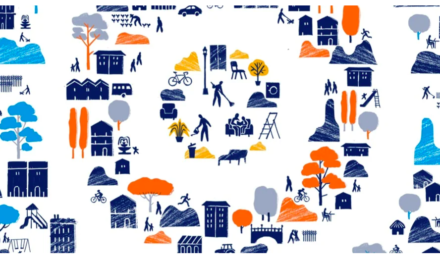In the age of online quizzes and personality tests, many of us have had a lighthearted moment discovering which fictional character or pop song “perfectly matches our vibe.” However, while these internet quizzes may be entertaining, they lack scientific rigor. Surprisingly, many widely used personality assessments in educational and corporate settings, despite being a multi-billion-dollar industry, also fall short in predicting career success.
Traditionally, personality tests have operated on the assumption that our traits are fixed, leaving us to believe we are stuck with the personality we are born with. However, modern psychology offers a different perspective: personality is not static; it can evolve over time.
As both a clinical psychologist and a researcher in personality change, I’ve witnessed this transformation in my own life and among my patients. Just as I have transitioned from being disorganized to markedly conscientious, research shows that individuals can intentionally cultivate the traits necessary for success and fulfillment.
Understanding Personality
Personality encompasses our characteristic ways of thinking, feeling, and behaving. Consider these scenarios: Do you tend to view the world with optimism or pessimism? How do you react in traffic when someone cuts you off? Are you a planner or a procrastinator? These responses can categorize you into various labels—like optimistic, empathetic, or dependable.
Psychologists summarize these characteristics into five overarching traits, often referred to as the “Big Five”: neuroticism, extroversion, conscientiousness, agreeableness, and openness. This classification stems from extensive research that began in the 1930s, when psychologists sifted through a dictionary to identify and categorize words describing human nature.
It’s essential to recognize what personality is not. While many people perceive their personality as the core of their identity, scientific definitions clarify that personality does not encompass likes, dislikes, values, or sense of humor. Thus, altering your Big Five traits does not compromise your core self; rather, it reflects a shift in your responses to life’s situations.
Can Personality Change?
The answer is a resounding yes! Although changing one’s personality may seem daunting, we frequently adapt our thoughts, feelings, and behaviors throughout our lives. For instance, if you struggle with dependability, you can shift your mindset to recognize that “being on time shows respect.” By taking pride in arriving early and engaging in new behaviors—like setting alarms and reminders—you gradually embody reliability. Over time, these consistent changes can lead to a significant transformation in your personality.
Data supports this notion. Generally, personality evolves as we age; individuals report fewer negative emotions, greater conscientiousness, and a stronger focus on positive relationships. While there is variability in how much people change—some undergo significant transformations while others remain stable—research indicates that intentional cognitive and behavioral adjustments can accelerate this process. Remarkably, meaningful personality change can occur in less than 20 weeks.
Cultivating Beneficial Personality Traits
The good news is that the cognitive-behavioral techniques for cultivating desired personality traits are relatively simple, and you don’t necessarily need a therapist to implement them.
- Cognitive Changes: Begin by identifying and shifting your thinking patterns. Awareness is key—examine whether your thoughts are anchoring you to unhelpful traits. For instance, if you often think, “People are only looking out for themselves,” it may lead to defensive behaviors in social situations.
- Behavioral Adjustments: Pay attention to your habitual responses and experiment with new behaviors. Defensive interactions typically lead to negative feedback from others, reinforcing distrust. Instead, try adopting a more open approach—such as discussing your challenges with a colleague. This can provide insights into how others might respond differently, potentially transforming your social dynamics.
These strategies are effective because personality is fundamentally about how we think and act. By consistently modifying your mindset and behaviors, you can establish new habits that align with the personality you aspire to cultivate.
Conclusion
The understanding that personality is not fixed opens up a world of possibilities for personal growth and development. Instead of viewing yourself through a restrictive lens of predefined traits, consider embracing the potential for change. By actively engaging in cognitive and behavioral strategies, you can shape the traits that will help you thrive in your personal and professional life. Your personality is a canvas—don’t hesitate to paint it in the colors that resonate with your aspirations.












